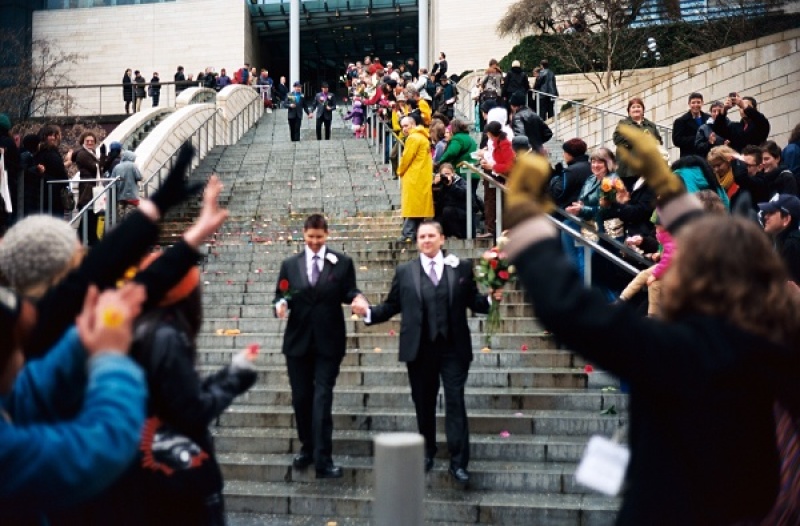

Federal judges have struck down the ban on same-sex marriages in Indiana and Utah, saying that these bans are unconstitutional.
In Utah, the Court of Appeals for the Tenth Circuit ruled against a state ordinance which defined marriage as being only between a man and a woman. Although this has been ruled against in this appeals court, this can still further be appealed to the U.S. Supreme Court.
The court ruled that the ban was unconstitutional on the basis of Equal Protection Rights and the Due Process Clause. The judges decided that not allowing an individual to marry someone on the basis of the spouse's gender was discriminatory, and hence, unconstitutional.
Similarly, the U.S. District Court for the Southern District of Indiana struck down an ordinance in Indiana that did not allow same-sex marriages.
The ruling stated that "marriage and domestic relations are traditionally left to the states; however, the restrictions put in place by the state must comply with the United States Constitution's guarantees of equal protection of the laws and due process."
The Due Process Clause of the Fourteenth Amendment "guarantees that no state shall deprive any person of life, liberty, or property, without the due process of law."

















